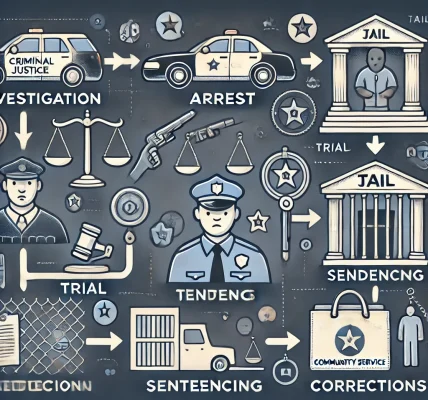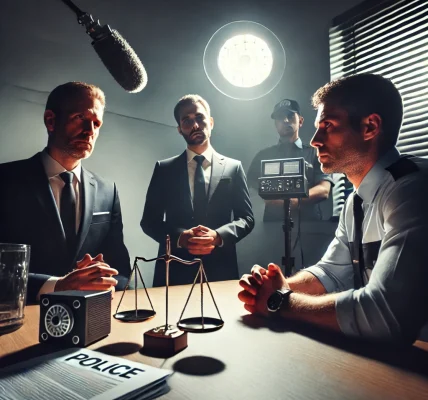When individuals face criminal charges, one of the most pressing concerns they have is securing their release from custody. Bail, a legal process that allows for temporary freedom before trial, plays a crucial role in the justice system. Understanding bail, its process, eligibility criteria, and conditions can help defendants and their families navigate this complex process. In this blog post, we will discuss the essentials of bail in criminal cases, focusing on what you need to know while avoiding legal pitfalls.
What is Bail?
Bail is a legal mechanism that allows a person who has been arrested for a criminal offense to be released from custody until their trial date. The defendant (the person charged with the crime) can be released by paying a certain amount of money or providing a guarantee (called a surety). The idea is to ensure that the defendant will appear in court when required.
Bail is often granted to avoid holding someone in jail for long periods, especially when the crime is not considered severe or violent. However, if the defendant fails to comply with the bail conditions, they risk being arrested again.
Why is Bail Important?
Bail serves several purposes:
- Prevents unnecessary incarceration: Without bail, individuals who cannot afford to stay in jail would face long periods of pretrial detention. Bail ensures that individuals are not imprisoned without conviction.
- Assures court appearance: Bail guarantees that the accused person will return to court for their trial. If they fail to do so, the bail amount is forfeited.
- Promotes fairness: Bail ensures that people are not punished before their trial begins. It provides a chance for the defendant to prepare their defense from the comfort of their home.
Bail Process in Criminal Cases
The bail process begins after an individual is arrested and booked into custody. While each jurisdiction has its specific rules, the general procedure for obtaining bail involves the following steps:
1. Arrest and Initial Hearing
Once a person is arrested, they will typically be taken to a police station for booking, which includes gathering personal details and fingerprinting. After booking, the accused is presented before a judge or magistrate in a timely manner, often within 48 hours.
This initial appearance is critical because the judge will determine if bail should be granted and, if so, under what conditions. The judge will also decide whether the individual should remain in custody or be released.
2. Setting Bail
The judge determines the amount and type of bail based on several factors:
- Severity of the offense: More serious crimes (e.g., murder or assault) may result in a higher bail amount or no bail at all.
- Flight risk: If the judge believes the defendant may flee or not return to court, bail may be denied.
- Risk to the community: If the defendant is seen as a danger to others, bail may be denied or set at an unreasonably high amount.
3. Bail Payment Options
There are various ways to secure bail:
- Cash Bail: The defendant or a family member can pay the full amount of the bail in cash.
- Surety Bond: A bail bondsman provides a surety bond for the defendant. The defendant or their family typically pays a percentage (usually 10%) of the bail amount to the bondsman, who covers the rest. If the defendant fails to appear, the bondsman must pay the full bail amount.
- Property Bail: The defendant offers property as collateral. If they fail to appear in court, the property is forfeited.
4. Bail Hearing
If the defendant is unable to pay bail or if the judge deems it necessary, a formal bail hearing is held. This hearing involves arguments from the defense attorney and prosecution regarding whether bail should be granted, the amount, and any special conditions.
5. Release and Compliance with Bail Conditions
Once bail is set and paid, the defendant is released from custody with the understanding that they must return for subsequent court hearings. Conditions attached to bail may include travel restrictions, regular check-ins with law enforcement, or surrendering their passport.
Eligibility for Bail in Criminal Cases
Not all individuals are eligible for bail. The eligibility largely depends on the crime committed and the defendant’s criminal history. In some cases, bail can be denied if the offense is particularly severe or if the person is considered a flight risk. Below are some general guidelines:
1. Non-Violent Offenses
For individuals charged with non-violent crimes, bail is more likely to be granted. These crimes may include drug possession, theft, or property-related offenses. The accused may be released on bail while awaiting trial.
2. Violent Offenses
Bail may be more difficult to secure for violent offenses, such as assault, murder, or robbery. The severity of the crime and the safety of the community are key considerations.
3. Repeat Offenders
Defendants with a history of criminal activity or prior failures to appear in court may face higher bail amounts or bail denials.
4. Risk of Flight
If the accused is deemed likely to flee or if they have a history of fleeing legal proceedings, the judge may deny bail or set it at an unreasonably high amount.
Conditions of Bail
Once bail is granted, certain conditions may be imposed to ensure the defendant’s appearance in court and protect public safety. These conditions can vary depending on the case but may include:
1. Travel Restrictions
The defendant may be restricted from leaving the jurisdiction or must surrender their passport.
2. Regular Check-ins
Some defendants may be required to check in with a probation officer or law enforcement agency on a regular basis.
3. No Contact Orders
In cases involving domestic violence or assault, the judge may impose a no-contact order, preventing the defendant from communicating with the victim.
4. Electronic Monitoring
In some cases, an electronic ankle bracelet or GPS device may be used to track the defendant’s location.
5. Submitting to Drug or Alcohol Testing
For offenses involving substance abuse, the judge may require the defendant to undergo regular drug or alcohol testing.
What Happens if Bail is Not Granted?
In some cases, bail may be denied altogether. If this happens, the defendant will remain in custody until their trial. Bail denial is common in severe criminal cases, such as murder or when there is a significant flight risk. In such instances, the defendant will have to wait for their court date while incarcerated.
Alternatives to Bail
In some situations, defendants who cannot afford bail may be eligible for alternatives to traditional bail. These alternatives include:
- Personal Recognizance Bond: The defendant is released with a promise to appear in court, without having to pay bail.
- Release on Own Recognizance (ROR): The defendant is granted release without having to pay bail, based on trust that they will appear for trial.
- Bail Reduction: In some cases, a defendant may petition for a reduction in bail if they cannot afford the amount set by the judge.
Conclusion
Navigating the bail process in criminal cases can be daunting, but it’s important to understand that it is designed to provide temporary relief for individuals facing criminal charges. Whether or not bail is granted depends on various factors, including the nature of the crime, the risk of flight, and the potential danger to the community. If you or someone you know is seeking bail, it’s always advisable to consult with a legal expert who can guide you through the process and help ensure the best outcome.
Remember, this blog is intended for informational purposes only. Bail procedures can vary depending on jurisdiction, so it’s essential to consult an attorney familiar with the legal framework in your area to avoid legal issues.



